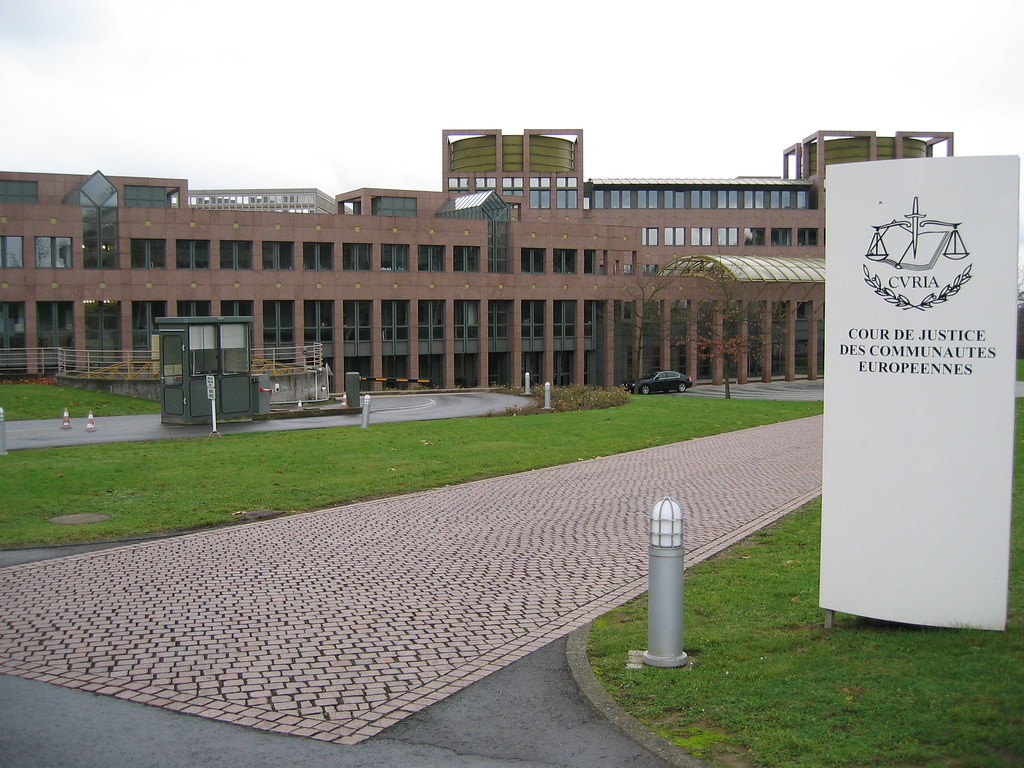 Photo from Flickr.
Photo from Flickr. The Advocate General for the European Court of Justice (ECJ) issued a June 13 non-binding opinion stating that the European Union (EU) product labels should specifically state if a product came from Israeli occupied territory.
The Washington Free Beacon reported on Aug. 9 that “the European Union is poised to mandate that Israeli products made in contested territories carry consumer warning labels” according to multiple sources. Sen. Ted Cruz (R-Tex.) subsequently tweeted on Aug. 12, “Mandatory labeling of Jewish products, what could go wrong?”
Mandatory labeling of all Jewish products. What could possibly go wrong? https://t.co/qCGPLTJkag
— Ted Cruz (@tedcruz) August 12, 2019
Rabbi Shmuley Boteach tweeted on Aug. 16 that he was going to put an ad in the Aug. 17 edition of The New York Times on the matter.
Get ready for a powerful full page ad in tomorrow’s @nytimes condemning the @EU for their attempt to label Jewish products from the Biblical heartland of Judea and Samaria in #Israel. Europe has been labeling and shaming Jews for hundreds of years, most notoriously in the 1930’s.
— Rabbi Shmuley (@RabbiShmuley) August 16, 2019
The aforementioned tweets stems from the advocate general, Gerard Hogan, argued that “a product originating in a territory occupied by Israel since 1967, the indication of the geographical name of this territory and the indication that the product comes from an Israeli settlement if that is indeed the case” so consumers can make ethical decisions on the products they buy. His non-binding ruling is in regards to a 2018 case involving the Israeli Psagot winery, which is located in a West Bank settlement north of Jerusalem, fighting against the French government’s efforts to label the product as originating from occupied territory.
Lawfare Project Executive Director Brooke Goldstein, whose organization is representing Psagot, told the Journal in a phone interview that EU trade regulations currently require product labels to disclose the product’s geographic location of origin; Hogan’s opinion moves the geographic designation into a political realm, Goldstein argued.
“It’s like saying… we’re labeling everything that comes from Crimea as illegally occupied by Russia,” Goldstein said, adding that Hogan is saying the EU has “to redo the entire labeling product system based on the whims of politicians and what’s happening in terms of who’s violating what international law.”
Goldstein also pointed out that if the ECJ, which consists of a panel of 15 judges, ends up adopting a ruling akin to Hogan’s non-binding opinion, “it will be challenged as discriminatory if only applied to Israel,” which is why she doesn’t think the ECJ will rule as such.
“The only purpose of singling out Jews and labeling is to influence consumer choice, not to educate them, influence them… boycott Jews living in territory which under international agreements – including the Oslo Accords – they are legally allowed to be,” Goldstein said.
According to Jewish Telegraphic Agency, the European Commission adopted regulations requiring products from the West Bank to be labeled as being from illegal settlements in occupied territory, but “the commission has no recourse against countries that do not apply the regulations and no lawsuit has been brought to date against a vendor who declined to apply them.”
No official timeline has been given for when the ECJ will rule on the matter.























 More news and opinions than at a Shabbat dinner, right in your inbox.
More news and opinions than at a Shabbat dinner, right in your inbox.